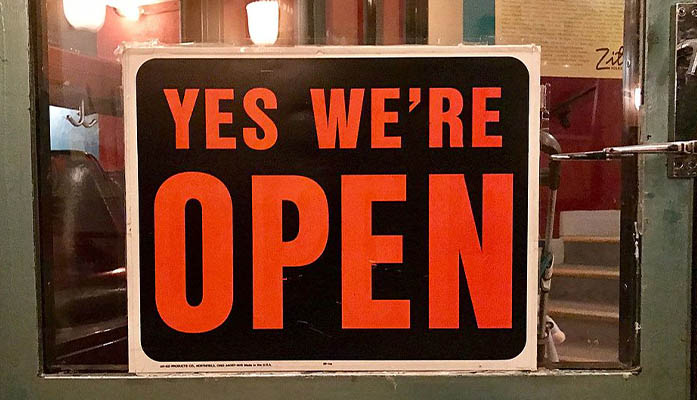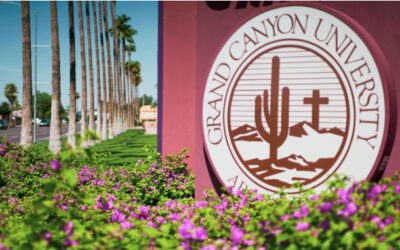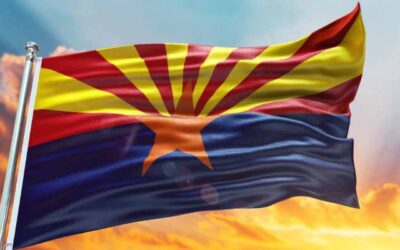On Wednesday, the Arizona Senate passed SB 1377 in a bipartisan vote, a bill that offers protection from litigation for businesses and others who act in “good faith” to implement reasonable policies to protect their customers, clients, and patients.
The bill, sponsored by Sen. Vince Leach, is considered “a critical piece of legislation” by large and small business organizations, who hope to open fully now that important COVID-19 metrics have dropped dramatically in the state.
DATA UPDATE:
Arizona’s number of ICU beds in use by #COVID19 patients decreased to 430. The number of ventilators in use by COVID-19 patients decreased to 253. 1/ pic.twitter.com/ILX4Uid14d
— The 9th Floor (@9thFloorAZ) February 24, 2021
Specifically, SB 1377 establishes “civil liability standards for specified acts or omissions during a state of emergency for a public health pandemic.” The standards would be established retroactively to March 11, 2020. March 11, 2020 is the date Gov. Doug Ducey declared a state of emergency due to COVID-19.
“Small business owners were crushed by the pandemic lockdown, and now face the prospect of enduring years of frivolous litigation by trial lawyers looking to cash in by blaming the spread of Covid on employers,” said Scot Mussi, President of the Arizona Free Enterprise Club. “SB 1377 would provide much needed legal protection to small business owners so that they are not sued for simply trying to stay open during the current crisis.”
The sponsor introduced the bill to ensure a presumption that any person or “provider” acted in good faith to protect a customer, student, tenant, volunteer, patient, guest or neighbor, or the public from injury or loss through reasonable attempts to comply with rely on published guidance issued by a federal or state agency in connection to a public health pandemic.
THANK YOU, Senators, for your bipartisan vote for commonsense liability protections! This reform will help spur Arizona’s post-pandemic recovery. https://t.co/v3pU0aF3II pic.twitter.com/AVSHp7R8Ei
— Arizona Chamber (@AZChamber) February 24, 2021
Public Health Pandemic Civil Liability
1. Precludes from liability for damages, during a public health pandemic state of emergency declared by the Governor, a person or provider who acts in good faith to protect a customer, student, tenant, volunteer, patient, guest or neighbor, or the public (litigant), from injury from the public health pandemic for injury, death or loss to person or property that is based on a claim that the person or provider failed to protect the litigant from the effects of the public health pandemic, unless it is proven by clear and convincing evidence that the person or provider failed to act or acted and the failure to act or action was due to that person’s or provider’s willful misconduct or gross negligence.
2. Establishes a presumption that a person or provider acted in good faith if the person or provider adopted and implemented reasonable policies related to the public health pandemic.
3. Applies the standard for liability to all claims that are filed before or after the general effective date for an act or omission by a person or provider that occurred after March 11, 2020, and that relates to a public health pandemic that is the subject of the state of emergency declared by the Governor.
4. Exempts claims for workers compensation from the outlined liability standard.
5. Defines provider as:
a) a person who furnishes consumer or business goods or services or entertainment;
b) an educational institution or district;
c) a school district or charter school;
d) a property owner, property manager or property lessor or lessee;
e) a nonprofit organization;
f) a religious institution;
g) the state or a state agency or instrumentality;
h) a local government or political subdivision, including a department, agency or commission of a local government or political subdivision;
i) a service provider;
j) a health professional; or
k) a health care institution.Health Professionals and Health Care Institutions
6. Precludes from liability for damages, during a public health pandemic state of emergency declared by the Governor, a health professional (professional) or health care institution (institution) that acts in good faith in any civil action for an injury or death that is alleged to be directly or indirectly the professional’s or institution’s action or omission while providing health care services in support of the state’s response to the state of emergency, unless it is proven by clear and convincing evidence that the professional or institution failed to act or acted and the failure to act or action was due to that professional’s or institution’s willful misconduct or gross negligence.
7. Applies the outlined limited liability to any action or omission that occurs:
a) during a person’s screening, assessment, diagnosis or treatment and that is related to the public health pandemic that is the subject of the state of emergency; or
b) in the course of providing a person with health care services and that is unrelated to the public health pandemic that is the subject of the state of emergency if the professional’s or institution’s action or omission was in good faith support of the state’s response to the state of emergency, including:
i. delaying or canceling a procedure that the professional determined in good faith was a nonurgent or elective dental, medical or surgical procedure;
ii. providing nursing care or procedures;
iii. altering a person’s diagnosis or treatment in response to an order, directive or guideline that is issued by the federal government, the state or a local government; or
iv. an act or omission undertaken by a professional or institution because of a lack of staffing, facilities, equipment, supplies or other resources that are attributable to the state of emergency and that render the professional or institution unable to provide the level or manner of care to a person that otherwise would have been required in the absence of the state of emergency.
8. Establishes a presumption that a professional or institution acted in good faith if the professional or institution relied on and reasonably attempted to comply with applicable published guidance relating to the public health pandemic that was issued by a federal or state agency.
9. Allows a party to introduce any other evidence that proves the professional or institution acted in good faith.
10. Applies the standard for liability to all claims that are filed before or after the general effective date for an act or omission by a person or provider that occurred after March 11, 2020, and that relates to a public health pandemic that is the subject of the state of emergency declared by the Governor.
11. Exempts claims for workers compensation from the outlined liability standard.
Under the legislation, a provider is defined as a person who furnishes consumer or business goods or services or entertainment, as well as an educational institution or district, school district or charter school, property owner, property manager or property lessor or lessee, a nonprofit organization, a religious institution, a state or a state agency or instrumentality, a local government or political subdivision (including a department, agency or commission), a service provider, a health professional, or a health care institution.
Anyone wishing to claim an “injury, death or loss to person or property” based on a failure to protect the litigant from the effects of the public health pandemic must be able to show the person or provider acted with “willful misconduct or gross negligence.” The liability protection also includes inactions which are alleged to have caused harm.








